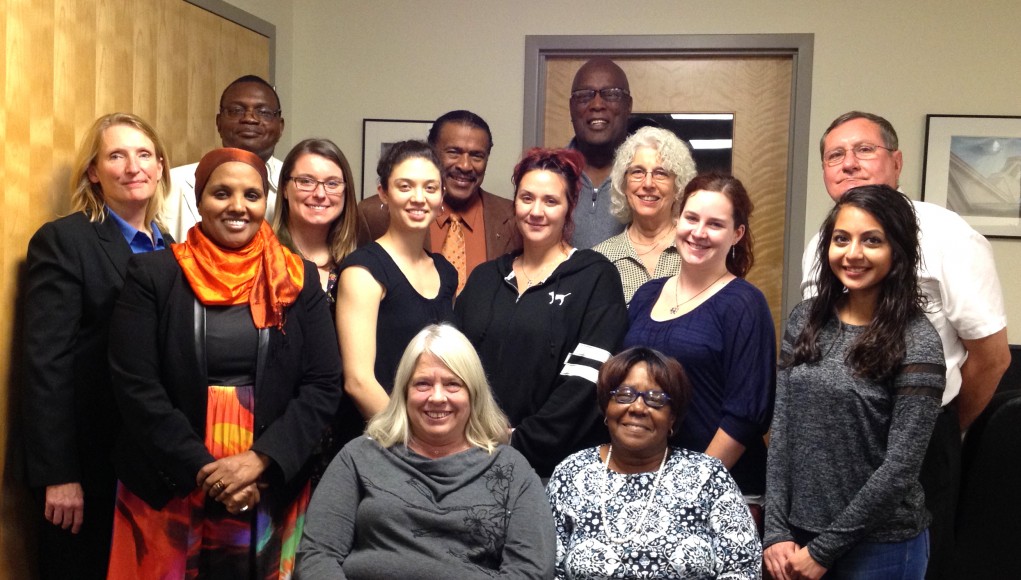Madison-area Urban Ministry (MUM) has been a leader in social justice in Madison and Dane County for 43 years now. Yet there are plenty of people in the community who have still not heard of it.
“I like MUM because it has a profound impact on the community,” MUM Development Director Nasra Wehelie tells Madison365. “But we always joke that MUM is the best-kept secret.”
For over four decades in Madison, MUM has vigorously focused on fair and affordable housing, homelessness, economic justice, poverty, racism, quality education, health care reform, and criminal justice system reform.
“The staff and the board of directors at MUM is really very diverse and I like that so much,” Wehelie says. “There are a lot of non-profits in Madison where you might see some lip service to their mission and values but at MUM they do what they believe. They hire individuals who come from prison. Their employee workplace is very diverse. We never turn away anyone for our services for those who need it.”

Wehelie has passion for community engagement and has served on several boards and committees of various organizations including: Wisconsin Youth Company; The Morgridge Center-University of Wisconsin; and the Greater Madison Chamber of Commerce Small Business Advisory Council.
“I like to be involved in my community,” she says. “For me, that’s very important. I like to get involved and to lend a helping hand.”
Her community experiences help her quite a bit as MUM development director, where Wehelie helps the organization grow and raises awareness about what MUM does. She also plays an important role in the fundraising. “I try to help the organization connect to business communities,” she says. “That has been challenging in the past but it has been getting better.
“Almost half of the people I meet with whether — it be businesses or community — they tend to confuse us with Middleton Outreach Ministry – MOM,” Wehelie smiles. “That’s one of the challenges, too.”
One of Wehelie’s most recent highlights reaching out to the community was when she met with Tom Zimbrick, CEO of Zimbrick Automotive, to let him know about the work of MUM. “Within a week they hired one of our individuals who began working with Zimbrick and who was promoted 2 months in,” Wehelie remembers. “Now, that individual has his own work, his own place to live and has completely transformed his life. Having that kind of story says so much about Zimbrick and I urge other organizations to come and meet us and to support the work that we do. At the very least, learn a little bit more.”
When she meets with Madison-area business leaders and community members, Wehelie talks about MUM’s great programs like Journey Home; Circles of Support; Just Bakery; Healing House; and Family, Mentoring, Reading.
Just Bakery, a vocational training program designed to prepare men and women with employment barriers to work in commercial bakeries, has been a big success, in particular. The program teaches life and employment skills, food safety training and math. Participants completing the Just Bakery program learn how to operate commercial kitchen equipment, obtain a certificate of completion from the Wisconsin Baker’s Association, and can enter the job market offering valuable knowledge and experience to employers.

The programs and the agency are led by longtime MUM Executive Director Linda Ketcham.
“Linda has been a great boss. A good leader allows you to make decisions and to come up with a plan for the organization,” Wehelie says. “She has been very supportive. She trusts my judgment and she is so passionate about the work of MUM and helping others who are vulnerable. She believes in second chances and that is something that is very dear to my heart. You always need that second chance.”
MUM offers an array of direct services programs for individuals and families impacted by the criminal justice system, including prison reentry programming, services for children who have an incarcerated parent, community events designed to help people understand what it’s like to walk in the shoes of someone newly released from prison, jail and prison in-reach programming, and an on-site emergency food pantry.
“People have this perception of these people [and say]: ‘Why are they giving these people a second chance?’ and ‘I don’t want to be around them,’” Wehelie laments. “Some of these individuals made some mistakes at a young age and they are now an adult and they need that second chance to become better individuals.
“MUM is about social change but also economic empowerment in our community. If someone comes back from prison and are given a second chance, they work and they become better citizens and better taxpayers,” she adds. “They transform their lives … and that’s what I see with MUM.”
When she tells these stories to businesses, they can see that it is an investment in the community worth making. “We have more productive people, we have a safer community, better economic growth,” Wehelie says. “That’s what we’re all about at MUM. It seems simple.”
The upcoming MUM Partners for Change Luncheon on April 12 at the Concourse Hotel in downtown Madison is also an event about investment in the community. “It’s a chance for people to learn about and to understand better the work of MUM,” Wehelie says. “We are inviting all of partners who have been our supporters so they can see the impact we have made on individuals and the community.”
The recidivism rate for MUM program participants is 7 percent … compared to the 67 percent statewide average.
“We are all working so hard at MUM right now and my hope is that the community knows the impact that MUM has on individuals,” Wehelie says. “So I want to continue to build our brand in the community and to become more well-known for not only our social justice but for our economic impact on the community.”




























